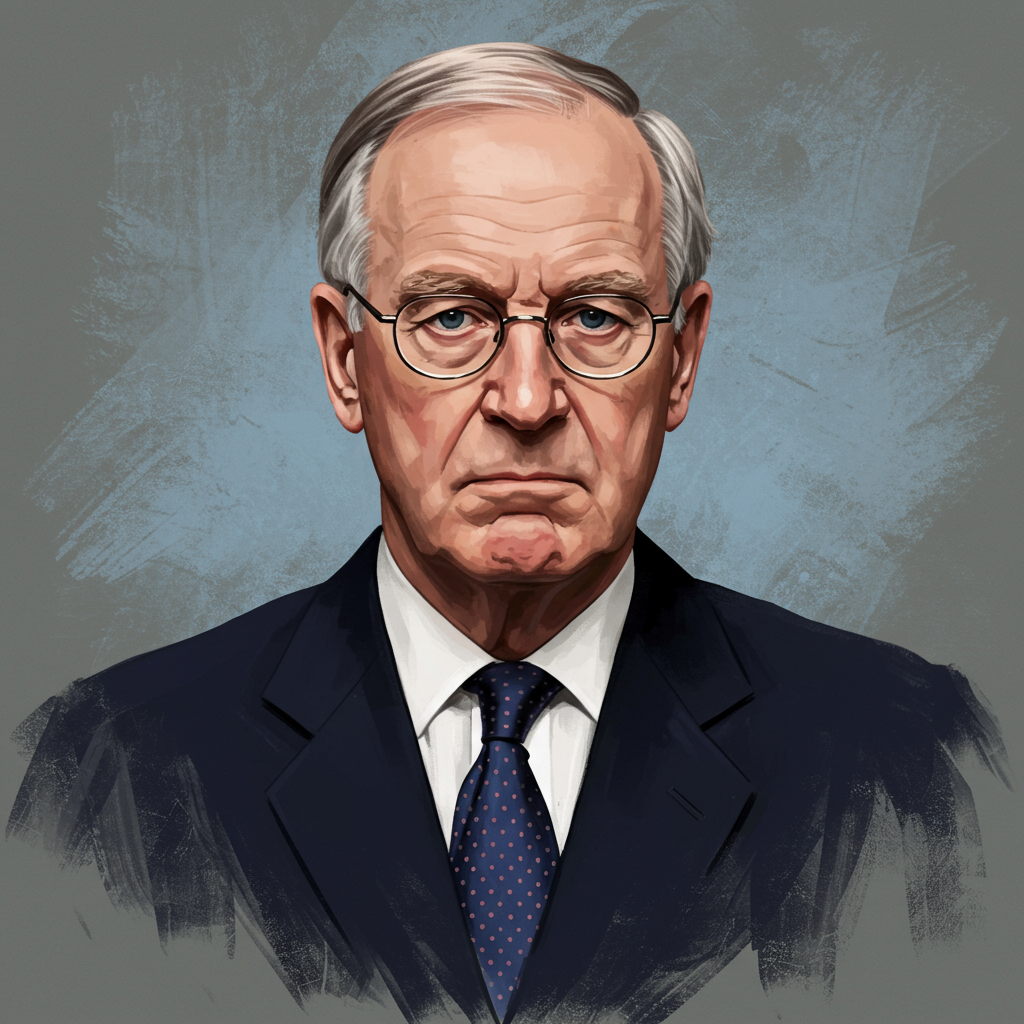British political life mourns the passing of Lord david Lipsey, a prominent Labour peer, who has tragically died after being reported missing while swimming. Police confirmed his death following an incident in the River Wye in Glasbury, Powys. This unexpected loss at the age of 77 marks the end of a distinguished career that spanned journalism, high-level political advisory roles, and contributions to sports governance. His passing has prompted tributes reflecting on his sharp intellect and lasting impact.
Concerns for Lord Lipsey’s safety were initially raised on Sunday, June 30. He was last seen swimming in the River Wye near his home in Glasbury, a village known for its scenic riverside location in Powys, Wales. Local authorities were alerted swiftly after his disappearance prompted worry among those close to him. The report triggered an immediate response from emergency services and law enforcement in the area.
Search and Recovery Operation
Following the report received by Dyfed-Powys Police, a significant multi-agency search operation was initiated. This coordinated effort began on Monday, July 1, involving police teams and other emergency responders skilled in river search and rescue. The search focused on the stretch of the River Wye where Lord Lipsey had last been seen, a popular but potentially challenging waterway.
Tragically, later that same day, Monday, July 1, the body of the 77-year-old peer was recovered from the river. Dyfed-Powys Police confirmed the recovery. They later formally identified the body as Lord David Lipsey, confirming the somber news of his death.
Police officials stated that Lord Lipsey’s next of kin have been informed of his passing. They also respectfully requested that the family be granted privacy during this profoundly difficult time of grief and mourning. The circumstances of his death are being examined, standard procedure in such cases.
A Life in Politics and Public Service
Born in Dorset, David Lipsey had a long and impactful career before entering the House of Lords. He established himself as a respected figure across various fields. His move to Powys later in life saw him become an active part of his local community, notably serving as a patron of the Glasbury Arts Festival.
High-Level Political Advisory Roles
In the 1970s, Lord Lipsey served at the heart of the Labour government. He worked as a special adviser to Anthony Crosland, a prominent Labour minister known for his intellectual contributions to socialism and his diaries. This role provided him with key insights into government policy and political strategy during a turbulent period.
His expertise also took him to 10 Downing Street. He served on the staff there under Prime Minister Jim Callaghan, who later became Lord Callaghan. Working within the Prime Minister’s office gave him a close view of the highest levels of British governance and political decision-making. These early roles cemented his reputation as a knowledgeable political operator behind the scenes.
A Career in Journalism
Before his significant political advisory work, Lord Lipsey honed his skills as a journalist. He wrote for several highly respected publications, contributing to national discourse through his writing. His journalistic career included stints at The Sunday Times, the influential political magazine New Society, and the globally renowned economics publication, The Economist.
In 1988, he was also involved in co-founding the Sunday Correspondent newspaper. Although the paper proved to be short-lived, his participation underscored his dedication to public information and political commentary. His background in journalism undoubtedly informed his later contributions to political communication and strategy.
Coining Iconic Political Phrases
Lord David Lipsey is famously credited with coining two phrases that became deeply embedded in the lexicon of British political history. He is widely cited as originating the term “New Labour.” This phrase was famously adopted by the Labour Party under Tony Blair’s leadership in the mid-1990s to signal a modernisation and shift in ideology.
He is also credited with coining “winter of discontent.” This evocative phrase refers to the widespread strikes and industrial unrest that occurred in the UK during the winter of 1978–79 under the Labour government led by Jim Callaghan. Both phrases capture specific moments and movements in recent political history and remain in use today, a testament to his influence on political language.
Peerage and Later Contributions
Lord Lipsey was granted a life peerage in 1999 by then-Prime Minister Tony Blair. This elevated him to the House of Lords, allowing him to continue contributing to public life and policy debates from the upper chamber. He served actively in the Lords, bringing his extensive experience in government, journalism, and policy to discussions.
Passion for Greyhound racing and Welfare
Beyond the political sphere, Lord Lipsey held a deep interest in sports, particularly greyhound racing. He served as the chair of the British Greyhound Racing Board, now known as the Great British Greyhound Board, for several years, from 2004 to 2009. His tenure coincided with efforts to modernise the sport and address welfare concerns.
A keen advocate for animal welfare, he was particularly dedicated to initiatives focused on rehoming greyhounds after their racing careers concluded. He championed efforts to ensure these dogs found suitable homes, highlighting the importance of responsible ownership and retirement for racing animals. This work demonstrated a commitment extending beyond politics.
More recently, Lord Lipsey also held prominent roles in other racing codes. He chaired the British Harness Racing Club for some time. He also chaired Premier Greyhound Racing from its inception until his retirement earlier in 2025. His involvement underscored his significant influence and dedication within the racing community.
Tributes from the racing world have poured in since the news of his death. The British Horseracing Authority described him as a “staunch supporter of British horseracing” and noted his past membership of the All-Party Parliamentary Group on racing. Premier Greyhound Racing released a statement expressing profound sadness, highlighting his wisdom, guidance, dedication, professionalism, and humour during his time as their chair.
Official Condolences
News of Lord Lipsey’s death has prompted messages of sympathy from his colleagues in Parliament. Lord Speaker John McFall, the presiding officer of the House of Lords, extended official condolences on behalf of the upper chamber. He stated that the House of Lords sent its deepest sympathies and condolences to Lord Lipsey’s family and friends during this difficult time.
The passing of Lord David Lipsey is a significant loss to British public life. His career trajectory, from influential journalist and adviser to a respected member of the House of Lords and advocate for greyhound welfare, demonstrates a varied and impactful contribution over several decades. His ability to shape political discourse through language, exemplified by the phrases he coined, leaves a lasting legacy. The circumstances of his tragic death add a layer of sadness to the remembrance of a man who served his country in many capacities.
Frequently Asked Questions
What happened to Labour peer Lord David Lipsey?
Lord David Lipsey, a Labour peer, tragically died after being reported missing while swimming in the River Wye near Glasbury, Powys. Concerns were raised on Sunday, June 30. A multi-agency search was launched on Monday, July 1, and his body was recovered from the river later that same day. Police have confirmed his death at the age of 77.
What famous phrases is Lord David Lipsey credited with coining?
Lord David Lipsey is widely credited with coining two highly significant phrases in British political discourse. He is recognised for originating “New Labour,” the term used to brand the revitalised Labour Party under Tony Blair in the 1990s. He also coined the phrase “winter of discontent,” referring to the widespread strikes and industrial unrest in the UK during the winter of 1978–79 under the government of Prime Minister Jim Callaghan.
What was Lord David Lipsey’s career before entering the House of Lords?
Before being awarded a life peerage in 1999, Lord David Lipsey had a distinguished career in both journalism and politics. He worked as a journalist for publications including The Sunday Times, New Society, and The Economist. In the 1970s, he served as a special adviser to Labour minister Anthony Crosland and worked on the staff at 10 Downing Street under Prime Minister Jim Callaghan. He also co-founded the Sunday Correspondent newspaper in 1988.



